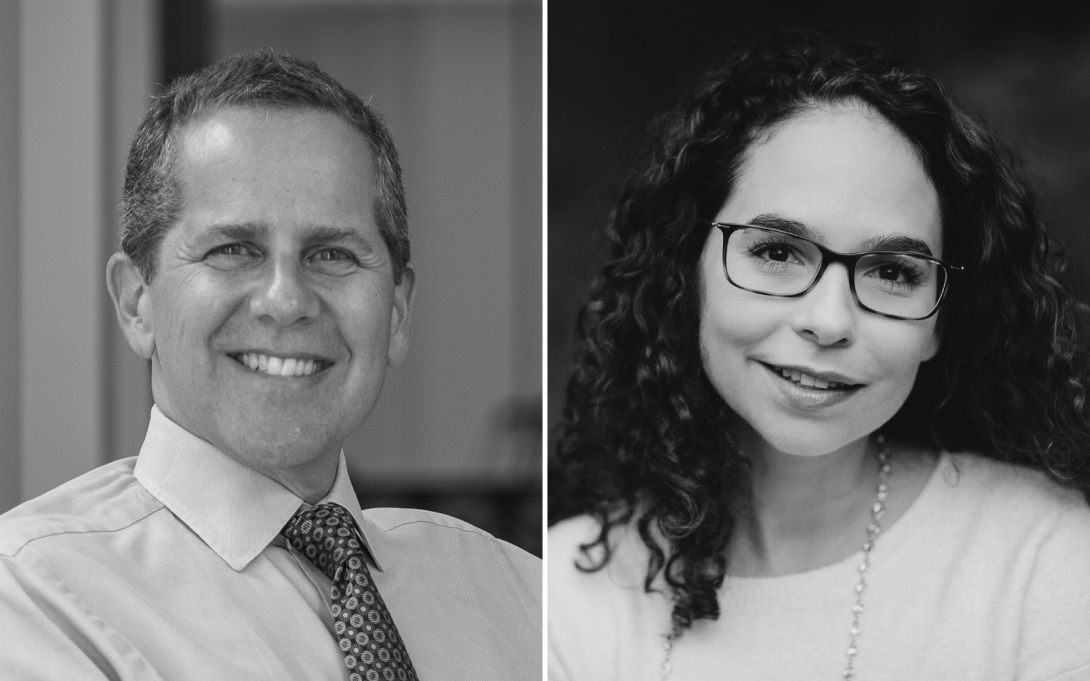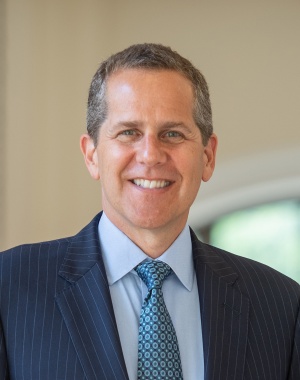
Ford School Dean Michael S. Barr and Professor Morela Hernandez, faculty director of the Leadership Initiative, reflected on the attributes and importance of good leadership as an essential asset for public policy practitioners during a summer event.
Hernandez, who is also a professor of organizational psychology, operates at the intersection of leadership and diversity. She is an internationally recognized scholar of behavioral science.
The Leadership Initiative involves assessments, coaching, professional development and extracurricular and co-curricular activities in addition to academic work. “All of these are designed to enhance our students' ability to lead in this complicated world that we're in right now,” Barr said. “At the Ford School we describe leadership as the behavioral process of having a positive impact on individuals, organizations and communities. I would say in our context we are focused on that definition in advancing the public good, the core of our mission.”
The academic work has involved systematically building additional courses into the curriculum: on leadership, leading diverse organizations, public management, nonprofit management, courses in conflict resolution, and negotiations.
Hernandez described her mission as bringing it all together into a cohesive, transformative experience for the students. For her, personally, she described the responsibility of leadership as sobering, understanding how future generations will be impacted by the decisions they make today. “On a scholarly level, it is rare for an organization to codify exactly what is leadership in this context and then put it into a definition that is used widely and is a consensus around it. To me that signals that the values of the Ford School are strong and consistent with how the school is run,” she said. “Over the past hundred years there has been very little consensus in how scholars approach leadership. Over the past 20 to 30 years, there's been much more overlapping understanding that leadership is a process.”
She went on to give her working definition: “Leadership is a process of self-discovery and self-development that is really a way of developing others, influencing others, for a common goal.”
They agreed that a counter-intuitive aspect to good leadership is humility and acknowledging vulnerability.
“Vulnerability for top-level leaders is one of the most powerful tools in their toolbox. It changes the dynamic of not just the conversation, but how you relate and interact with others.
I think that the more experience and the more seasoned you become the easier it actually is to use the tool of vulnerability, in that successful people have made a lot of mistakes. They are successful because they learned from those mistakes. They are successful because they have not denied the fact they made the mistakes, but rather they embraced the fact that that was a learning opportunity,” Hernandez said.
Barr said his biggest leadership lesson was to be honest and transparent about uncertainty. “I think sometimes leaders make mistakes because they feel the way that they make people feel better about the uncertain environment is to claim that it is not uncertain, that everything is clear. And people just really can't respond to that because they know it is not true. You have to be really honest with people about the uncertainty. Give them tools to cope with the uncertainty.”
The Leadership Initiative focuses on three elements : managing one's self, managing others. and managing organizations. It recognizes that “we lead from where we are.”
“Leadership isn't about formal authority and formal power. It is not about title and it is not about position. What leadership is about is influence. That's a very different thing. You have the ability to influence others from wherever you are,” Hernandez said.
In encouraging diversity, and giving opportunity to underrepresented people, Hernandez said leaders need to be proactive and challenge the systems that have been constructed.
“I think the responsibility of leaders lies in not sitting back to wait for adjustments to be demanded legally or otherwise, but being future-oriented in thinking about the type of workforce that I want to create, the type of environment I want to reflect.”
Finally, she challenged the notion that a leader has to be an extrovert to be effective. “It is not only enough to know yourself, to be personally capable. It is not enough to develop these strong relationships and really learn about other people. As a leader, you need to take both of those components and put them into action. As a leader, how do you develop the right process given all of the dynamics that naturally emerge? Those nuances of how the moving parts are arranged and the levers that you have to move them, that's the contextual piece. Introversion and extroversion? Extroverts may go at it differently. They are learning from a whole suite of individuals, again, seeking out people. Whereas introverts might think much more about different sources of information that are not necessarily interpersonally based. But both get to the same place. Those are skills anyone can develop.”
You can see the entire discussion here.


